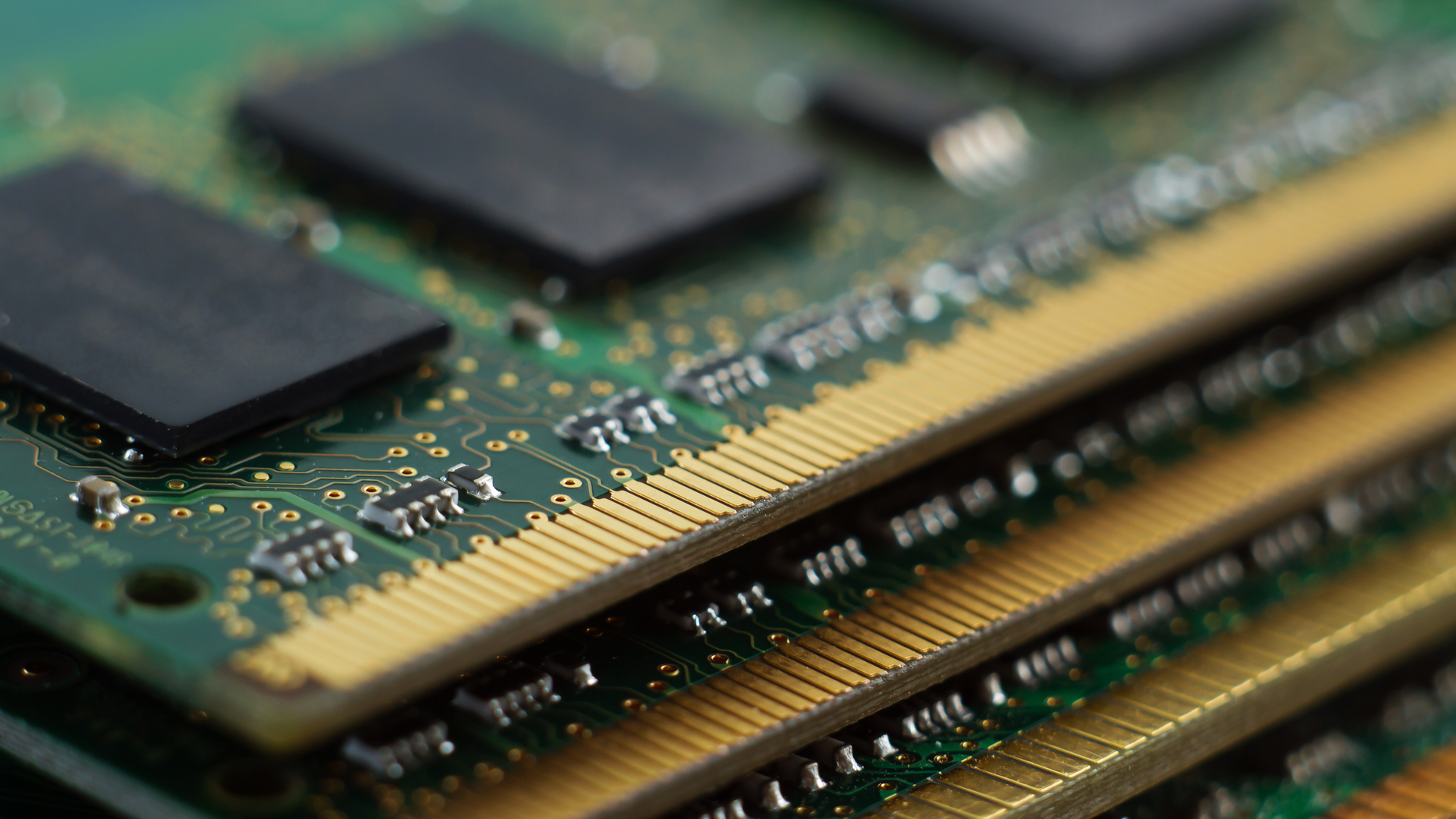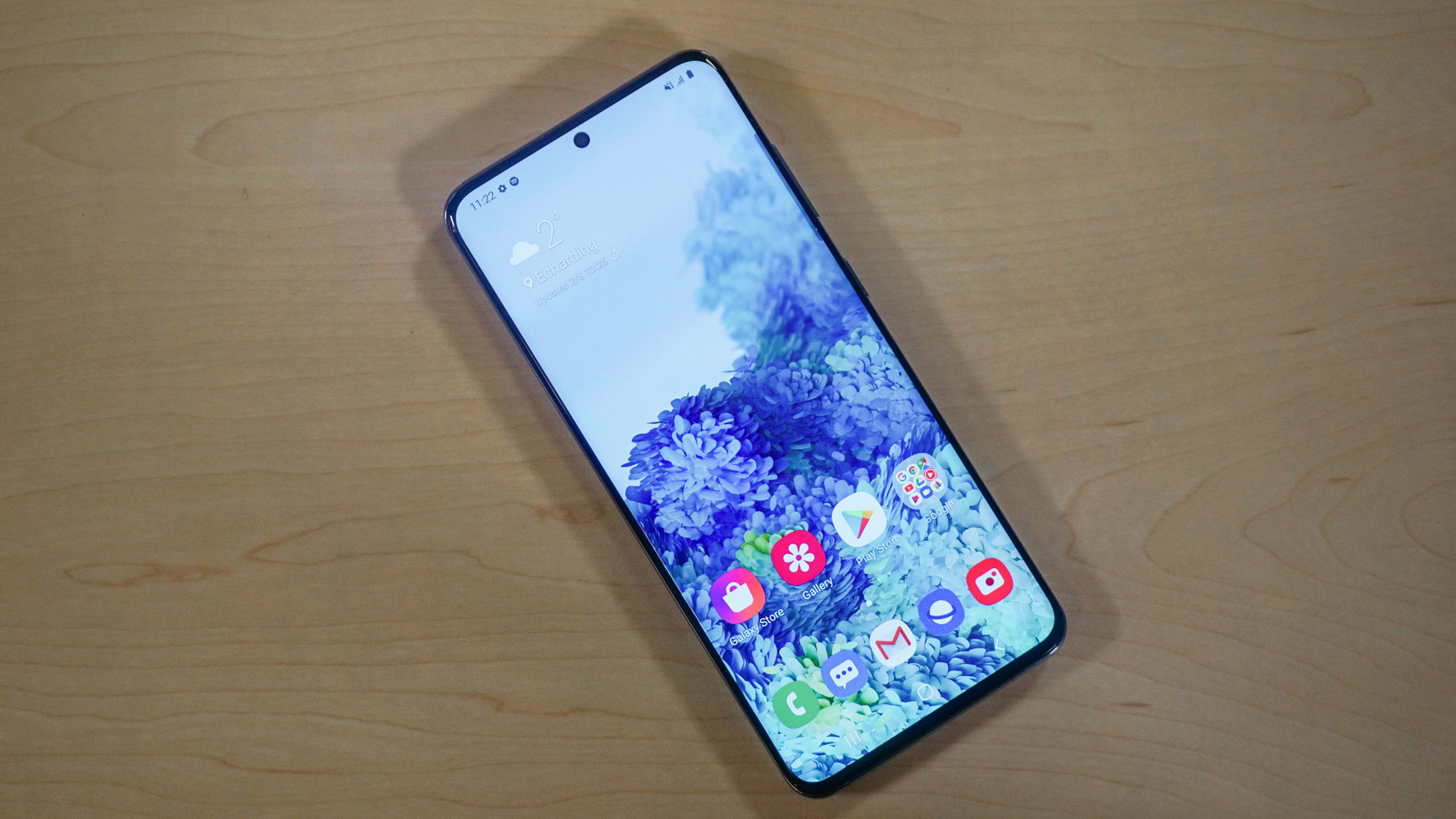The Samsung Galaxy S20 has more RAM than most laptops – and that’s stupid
More RAM than a Paul McCartney solo album

You might have noticed that Samsung has released several new phones recently, and the Galaxy S20 range are the latest handsets to come with a frankly ludicrous amount of RAM: a choice of 8GB and 12GB of the stuff.
And I’m not saying that in a ‘woah, that’s an awesome amount of RAM’ way, but in a ‘this is just silly, what smartphone needs that much RAM?’ kind of way.
After all, most Windows 10 laptops have 8GB of RAM or less. The fact that Samsung is pushing phones with that kind of memory is at best pointless, and at worse insulting to customers who are paying for RAM they shouldn’t need.
There’s another negative aspect as well, which I’ll get to in a moment.
But let’s address the main issue. Does a smartphone really need 8GB of RAM – or more? I honestly don’t think so. After all, I recommend that people buy Windows 10 laptops with 8GB of RAM, but then you’re usually performing more intensive tasks – often at the same time – with a laptop compared to a smartphone.

Gaming PCs that run graphically-demanding titles can also benefit from that level of RAM – and while mobile games are more impressive than ever, they still don’t compare with the best PC games. And if you’ve got a gaming PC or laptop, then unless you’re live streaming at the same time, you don’t really need more than 8GB. Meanwhile, some versions of the Samsung Galaxy S20 come with 12GB of RAM.
One of the reasons I suggest people get a laptop with 8GB of RAM compared to 4GB is because Windows 10 is a big old bloated beast of an operating system.
Sign up for breaking news, reviews, opinion, top tech deals, and more.
More streamlined and better optimized operating systems, like Chrome OS and Linux, don’t need that kind of RAM. That’s why you see Chromebooks with 2GB and 4GB of the stuff – and they run absolutely fine.
Android, the operating system the Samsung Galaxy S20 runs on, is the most successful operating system in the world for a reason – it’s lightweight and versatile enough to run on billions of smartphones and tablets, the vast majority of which have nowhere near 8GB of RAM.
Meanwhile, the Android apps that you’ll be running on the Galaxy S20 will be designed for the bulk of Android devices which have limited RAM capabilities.
What this essentially boils down to is that you’re very unlikely to need that 8GB of RAM in the Samsung Galaxy S20, unless you’re doing something like 8K video recording, which while a nice feature to have, isn’t going to be that widely used by people.

Why has Samsung gone overboard with RAM?
So why has Samsung packed the Galaxy S20 range with so much RAM? I think the short answer is that it’s a nice big number that sets it apart from handsets by its competitors.
By cynically including that much RAM, Samsung seems to be hoping that it will convince people that its phones are better than, say, the iPhone, because it has more RAM.
And, let’s face it, smartphone design and innovation has been boring recently. Smartphone makers want to find ways to encourage people to upgrade their phones every two years, and they are running out of ideas, I think. If you still think your two-year-old phone does the job fine (and unless it’s a Windows Mobile phone, you’d be right), then why spend money on a new phone?
That’s why smartphone makers (like – and I’m pulling a name out of a hat at random here – oh let’s say Samsung) have been foisting new foldable form factors on us which are overly expensive, don’t offer any real benefits and are plagued with problems.
The same goes for RAM. Samsung hopes you’ll look at your current handset with a paltry 512MB RAM and think ‘hey that new Galaxy S20 has 8GB RAM! It must be much better, and will allow me to phone people/check WhatsApp/play Pokémon Go so much faster!’ when, of course, that’s not going to be the case.

What’s the problem?
However, if Samsung wants to put 8GB or 12GB in its flagship smartphone, what’s the problem? Well, while Samsung is of course allowed to do whatever it likes with its products (as long as they don’t explode), there is something I take issue with.
Putting that much RAM into a smartphone isn’t cheap – and the Samsung Galaxy S20, at a price of $999 / £899 / AU$1,499, is one of the most expensive smartphones ever.
It’s $100 more than what the Galaxy S10 launched at, and a big part of that high price will be because of the RAM. That means that Samsung is charging people for something I just don’t think they are going to use. That’s not good.
There’s also more serious longer term repercussions of Samsung using this much RAM, however.
You see, if this encourages smartphones to contain ever-more RAM, we could see smartphone OSes and apps becoming ever more bloated. If they have all that RAM to play around with – why waste all that time trying to optimize them?
We’ve seen something similar happen with computing and games. My first PC was an Amiga A500+. A fantastic device that had some of the best games and tools of its time. It had a minuscule 1MB of RAM and no hard drive at all – you had to rely on floppy disks that held just 880KB of data.

These constraints led to some of the most innovative games and applications ever made, with stunning graphics and audio for its time. For anyone who’s had to download a 50GB game (or install one from a disk) and then download a 10GB day-one patch, the idea that an entire, finished, game could be put on a 1.44 floppy disk (or 12 of them if you’re as awesome as Monkey Island 2) will seem like some of highly-optimized utopia.
But the point I’m making is that if the majority of phones start coming with 12GB of RAM, you can be damn sure that apps and operating systems will begin making use of that RAM. In some cases, it will involve adding great new features. In many cases, though, it will simply mean the software isn’t as optimized as it once was. And no one wants that.
- Don't get a smartphone with 8GB RAM. These are the best laptops

Matt is TechRadar's Managing Editor for Core Tech, looking after computing and mobile technology. Having written for a number of publications such as PC Plus, PC Format, T3 and Linux Format, there's no aspect of technology that Matt isn't passionate about, especially computing and PC gaming. He’s personally reviewed and used most of the laptops in our best laptops guide - and since joining TechRadar in 2014, he's reviewed over 250 laptops and computing accessories personally.